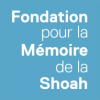Help for survivors : Solidarity Committee
The Solidarity Committee helps organizations and institutions develop programs for Holocaust survivors and, in some cases, their families.
Applications must be submitted according to a specific timetable depending on the nature of the program and the organization proposing the project. Please note that the deadlines for medical-social programs (homecare, day centers, assistance in long-term care facilities for seniors) and social outreach projects are different.
There is a specific procedure for projects outside France, in Europe and Israel.

Deadline for submitting applications
From November 17th to December 16th, 2025 (for projects in France and in Israel)
Objectives
To develop programs meeting the needs of Holocaust survivors (including Jewish people who lived in metropolitan France during the Second World War).
Types of projects funded
Enabling seniors to stay at home (home care, psychological support, volunteer programs, day centers, etc.)
Strengthening social ties and fighting isolation (organizational activities, excursions, etc.)
Improving living conditions in long-term care facilities and microsocial residences
Supporting caregivers (advice, administrative aid, rest programs, etc.)
One-time aid (emergency assistance, material aid)
Application guidelines
The Foundation only funds projects within its areas of competence.
The application must be for a specific project benefitting Holocaust survivors.
All applicants must conduct a search for co-funding.
The Foundation funds projects already underway.
The projects must aim to provide support that meets the needs of Holocaust survivors or people affected by the Holocaust, including:
- As a priority, former Jewish deportees from France, their spouses, their children and persons who were orphaned as a result of the Holocaust,
- Jewish people who were interned in camps in metropolitan France and North Africa,
- Jewish people who lived in metropolitan France during the Second World War,
- Jewish people whose lives were in danger and who arrived in metropolitan France after the Liberation from territories occupied or administered by the Nazis or their allies,
- Other victims of anti-Semitic persecution during this period whose lives were in danger and who live in Central or Eastern Europe or in Israel,
- People who helped to save Jews, especially the Righteous Among the Nations.
- Social workers have some leeway in assessing, on a case-by-case basis, the applicants’ needs and whether they meet the criteria of Holocaust survivor.
Assessment guidelines
The project’s relevance to Holocaust survivors’ needs and the expected impact
The project’s relevance to the organization’s overall program and the effective involvement of staff (management, practitioners, caregivers and auxiliaries)
The relevance of the project’s budget and the justification of the requested amount
The quality of thought that has gone into the project and the staff’s approach to Holocaust survivors’ wellbeing at home or in an institution
The applicant’s ability to successfully carry out the project
The training and supervision of care-giving and management staff
The benefits for the target population
Eligible applicants
In France: medical and social institutions, associations and non-profit organizations
In Israel: social institutions and non-profit organizations
In Europe: in consultation with the Joint Distribution Committee, Jewish social community institutions devoted to healthcare, psychological counseling and services for elderly people
The Foundation does not provide funding directly to individuals but through the intermediary of long-standing organizations.
Funding arrangements
If financial aid is granted, a partnership agreement will be signed.
The project organizer agrees that the amount paid by the Foundation will benefit Holocaust survivors.
The Foundation’s funding is generally awarded in several installments.
Payment of the balance is subject to an assessment review. The project organizer agrees to provide the Foundation with the necessary administrative and financial documents and to let it monitor the funding’s use.
To renew projects organized by medical and social institutions, the review is done annually following a standard qualification and reporting procedure.
In its various communication materials, the project organizer agrees to inform the beneficiary of the Foundation’s funding.
Applying for funding
Before applying, please read the complete procedure and contact us to make sure your project is eligible.
Depending on the nature of the program and the project organizer, applications must be filed according to the timetable. Please note that international projects can have different closing dates.
Barring exceptions, the Foundation announces its decision three to six months after receiving the complete application.
Contact
Project manager
Mrs Rachel Rimmer
Assistant
Mrs Yanique Mervius
Tel: +33 (0)1 53 42 63 23
Email: solidarite@fondationshoah.org









